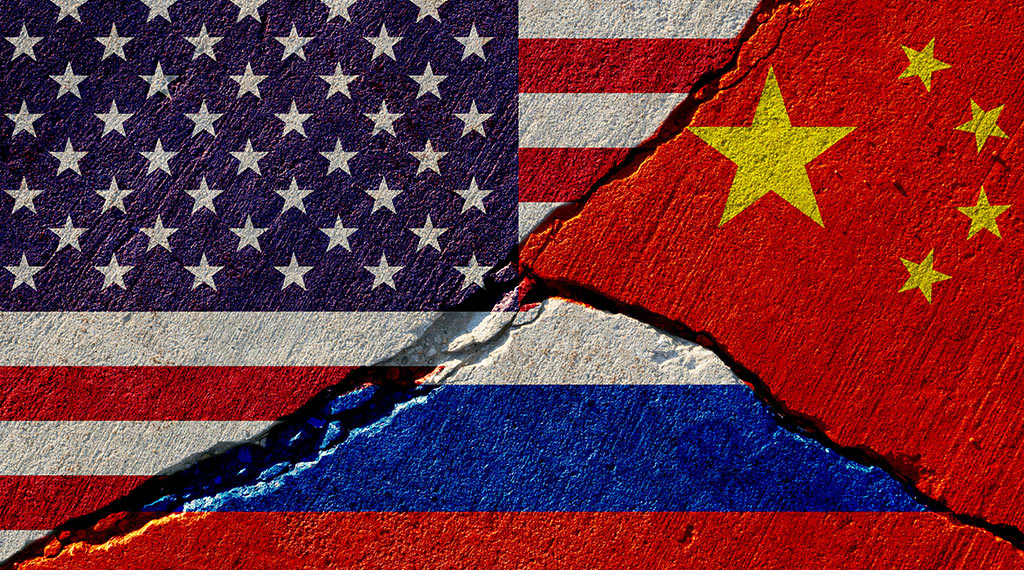US must ‘expand the battlefield’ to win a war against China over Taiwan

Editor’s Note: Center Senior Grant Newsham was quoted extensively in this piece by The Epoch Times
The United States can win a war against China over Taiwan, analysts say, but it must take steps to expand its efforts in the different domains of economics, warfare, and diplomacy against the Chinese regime.
Describing a wargaming exercise conducted in October 2020, including a simulated conflict with the Chinese regime over Taiwan, then-Vice Chairman of the Joint Chiefs Gen. John Hyten said in July, “Without overstating the issue, it failed miserably.” As a result, Hyten called upon the Pentagon to overhaul its warfighting strategy to gain the edge in battle by 2030.
Grant Newsham, a retired U.S. Marine Colonel who was the first Marine Liaison Officer to the Japan Ground Self-Defense Force, told The Epoch Times that “the more people hear about losing a fight with China over Taiwan, it creates a sense of defeatism, a sense that there’s nothing we can do.” He said that “America must expand the battlefield” to find success against the Chinese regime.
James Fanell, a former director of intelligence and information operations for the U.S. Pacific Fleet, concurred. He said that “the U.S. would have difficulties operating inside the first island chain, so the battlespace needs to be expanded not just in the military arena, but also the economic and diplomatic arena.”
Weaken With Sanctions
Newsham and Fanell said lines of trade and commerce can be affected, if not stopped. And this would have a significant impact on the Chinese regime’s ability to exert itself over Taiwan. “Because China is dependent on overseas assets,” Newsham said. “It is very vulnerable.”
Some of China’s top imports include integrated circuits, crude petroleum and petroleum gases, and soybeans. China is the second-largest trade destination in the world with total imports averaging approximately $1.61 trillion.
“The Chinese military, for all its rapid growth and power, is not able to defend China’s overseas interests, or its overseas lines of communication,” Newsham said. The country is “simply too dependent” on the Association of Southeast Asian Nations (ASEAN) and the European Union, its major import partners.
Fanell said, “By limiting access to overseas assets including technology, energy, and even food, it would put the Chinese Communist Party (CCP) at great risk.”
Newsham said that while it is seldom mentioned, it is also worth noting that “the renminbi [RMB], is not a convertible form of currency.” It’s merely the official currency of the People’s Republic of China, but “China can barely buy anything overseas with it, nor does anybody really want the currency,” he said.
According to Newsham, the United States could impose financial sanctions on China to take advantage of these “huge vulnerabilities” by stopping the flow of goods and keeping the use of the “people’s currency” internalized.
Fanell agreed, saying that “crippling economic sanctions would get China’s attention very quickly.” Additionally, he said the United States Navy could “interdict to stop or divert ships” from delivering many of its imported resources.
It is then that the Chinese regime would become “very vulnerable, not only militarily, but also financially and economically.” By expanding the battlefield in this manner, Newsham said “China would be given a very bad hand to play and be placed in a very weak position.”
Admittedly, if a fight with the Chinese regime was limited to the Taiwan Strait, Newsham said, “America would have a hard time, [but] by expanding the battlefield, odds would change immensely in favor of the United States.”
Click HERE to read more.
- Disregarded no more: China, its military aspirations, & its nuclear arms - August 25, 2022
- We can never have too many bases in the Pacific - July 1, 2022
- Russia’s attack on Ukraine may embolden China to seize Taiwan - February 28, 2022
